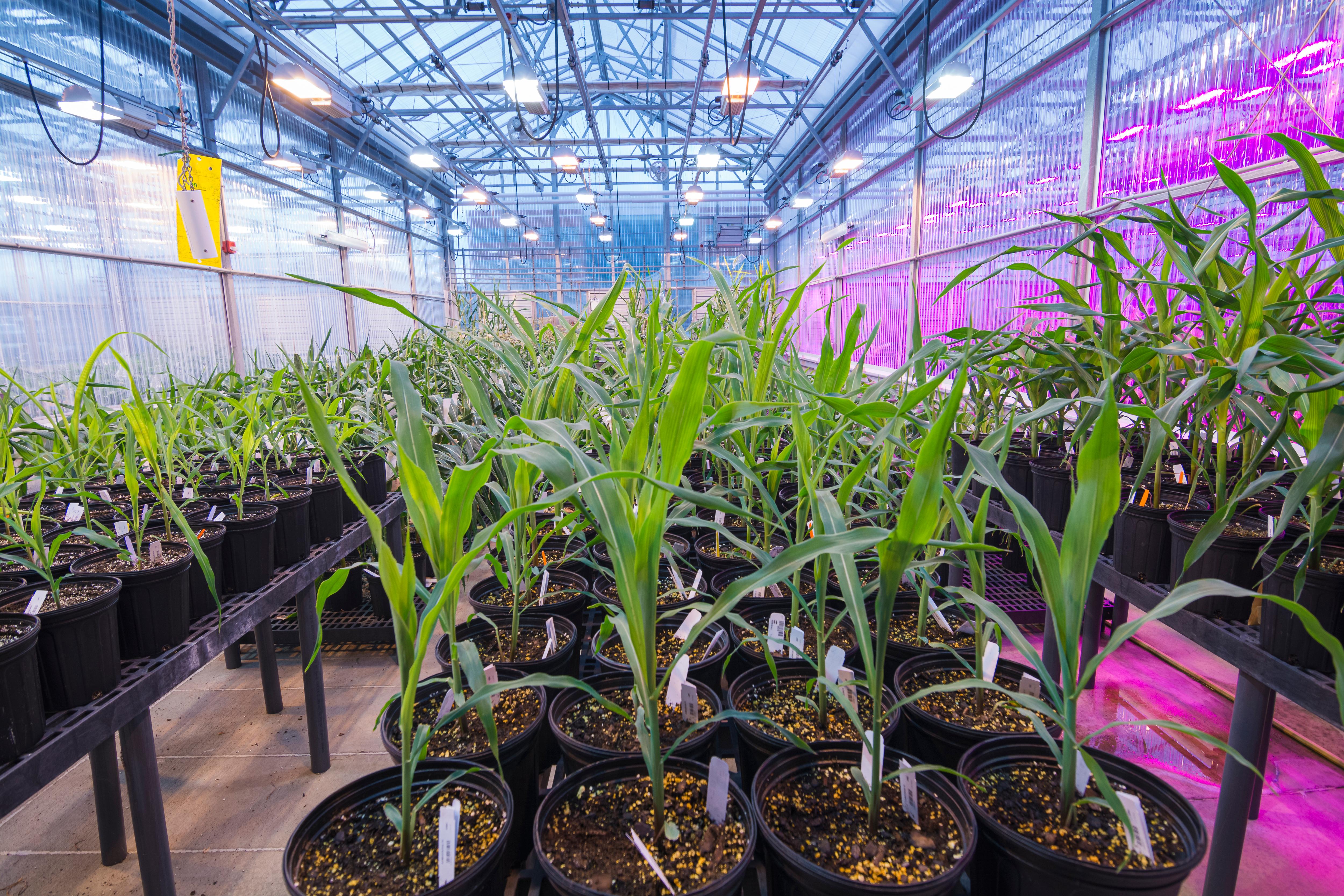
Blog • Published Date:October 17, 2023 | Updated Date:December 18, 2024 • 12 Min
Bridging International Business and Canada: Intra-Company Transferee Visa
Canada is home to one of the world’s most diverse immigration systems. It has various immigration channels for all types of people, but the most known are its economic visas.
Economic visas encompass everything – investment, business establishment, and worker visas – accounting for over 50% of all recent immigrants.
While some economic immigration routes, such as the PNPs and Express Entry, are well known, others do not get enough coverage, and one of those programs of high interest is the Intra Company Transferees or Intra Company Transfer Visa (ICT).
What is the ICT Visa
Canada’s government introduced ICT under the International Mobility Program initiative to improve the overall management effectiveness, competitiveness within the market, and Canadian exports to international markets.
The ICT is an immigration channel open to workers who want to come to Canada and work within a branch, subsidiary, or parent company of the multinational enterprise in which they are employed.
The ICT was designed to facilitate smoother employee movement between foreign businesses and their Canadian-based companies, so it is more focused on the nuances of international trade rather than just the immigration aspect regarding the employee.
Hence, ICT’s qualification criteria heavily centre around the company, the employee’s status, and the operation within Canada.
For a person to qualify for an ICT Visa, the following requirements must be met:
- The applicant is currently employed by a multinational company abroad and wishes to come to Canada to work in an affiliate, parent, branch, or subsidiary.
- The applicant must have been employed by the company for at least one full year in a continuous full-time role during the three years before applying.
- The applicant must transfer in an executive, senior managerial, or specialised knowledge capacity.
- The foreign company must be financially capable of supporting the applicant.
- The foreign and Canadian companies must have a clear relationship (parent, branch, affiliate, subsidiary) and must be conducting business together or will do so pending the transfer.
It is important to note that some exceptions can be made for part-time employees on a case-by-case basis.

How long is the ICT Visa valid?
The ICT is a temporary residence permit. It is valid for one year and can be renewed for up to seven years. After seven years, the transferee will have to leave Canada for 12 months before they can apply again.
The ICT does not lead to permanent residence, especially since it does not require applicants to remain in Canada as tax residents (reside for at least six months a year). However, that is not to say there is no way for an ICT Visa holder to obtain permanent residency.
After working for a Canadian company for one year, ICT Visa holders can apply for the Federal Express Entry Skilled Worker stream. Since they will have gained a year of Canadian experience, this will significantly boost their overall score and put them ahead of the pack.
ICT Visa holders will have the experience and background needed to get high points on Express Entry because ICT requires that they transfer as an executive, senior management, or specialised skill role, making their prospects of gaining a permanent residency permit through Express Entry even higher.
After residing in Canada as permanent residents for three years, they can apply for Canadian citizenship.
What are the benefits?
The ICT may not be a mainstream immigration channel because it targets a smaller niche than other economic immigration categories. Still, it does come with its own set of benefits:
- A Simple Route
For those who meet the criteria, the ICT Visa is one of the simplest ways to get into Canada.
- Labour Market Impact Assessment (LMIA) Exemption
Canadian employers needing to hire foreign workers must submit an LMIA document. This will require a lot of effort and time, as they have to prove they could not find a suitable Canadian citizen or permanent resident worker to fill the role. This puts massive pressure on the company and prospective employees.
ICT workers, however, are exempt from the LMIA rule.
- No Physical Residence Requirement
ICT Visa holders do not need to reside a minimum amount of time in Canada to renew. They only need to show that they are working full-time with the company, even if that includes a lot of travel abroad.
- Inclusion Of Family Members
ICT Visa applicants can include their spouse, dependent children below the age of 22, and dependent parents in their application as accompanying family members.
- Fast Processing Time
Since the ICT Visa is a temporary residence permit, processing times are quick, ranging between two to ten weeks on average.
If you’re still unsure about ICT, another great immigration program to consider is the SUV (Start-Up Visa). Here is all you need to know about it:
Discover Canada’s Top Sectors With The Start-Up Visa
Canada recently decided to increase its intake of immigrants in the upcoming three years, a plan which encompasses all of its immigration routes, and among them is the Canadian Start-up Visa (SUV).
Although not relatively new, the SUV has been garnering greater interest from global investors in the past five years, especially when the Quebec Investor Program shut down a year before the pandemic. That closure left the SUV as the leading federal investment program that offers applicants a direct permanent residency in Canada.
The simplicity of the Canada Start-Up Visa, coupled with its affordability and direct permanent residence (which ensures investors maintain their status regardless of how their business performs), made the SUV one of the best immigration programs on offer in Canada.
The Canada Start-Up Visa numbers were growing rapidly before the pandemic, as the program, which saw 160 applications in 2015, suddenly saw greater interest, culminating in an impressive 1,173 applications four years later (2019), resulting in a Compound Average Growth Rate (CAGR) of 48.95%.
Applications understandably took a dip during the COVID-19 closure, but they are on the rise again, as evident by 2022 registering 189% more applications than the year before.
The SUV requires applicants to have a CLB 5 English/French Language Level, a clean criminal record, and obtain a letter of support from a designated organisation for their business idea to qualify for the program.

To get a letter of support, applicants need to submit an innovative idea to an approved business incubator, angel investor, or venture capitalist. Innovate here refers to any new idea or any business new to Canada, of which there are many, making the SUV qualification criteria quite simple. This actually helps the business to succeed, as 19% of failed businesses in Canada are due to immense competition, an issue that is not a concern with SUV applicants as their business has no competition or it would not be considered innovative in the first place.
The business also needs funding, and that investment must correspond to the business itself. A fair average investment amount for approval under the SUV is about CAD $160,000 (USD 120,000), making it one of the most affordable residency by investment routes in not only Canada but the world.
Here are the most important factors regarding the investment aspect of the SUV and the provinces with the best sector-specific economic output.
A Federal-Scale Permanent Residency Program
One of the most important aspects of the Start-up Visa is that it is a federal program, meaning it is not limited to a specific province or area of Canada, unlike the Provincial Nominee Programs (PNPs), which limit applicants to reside and work in a specific province.
This flexibility can have significant financial implications, as applicants can choose provinces with lower business running costs or living costs, and the disparity in the cost of living between the nation’s provinces can make a big difference. For example, Alberta is 36% more expensive than New Brunswick on average, which could translate to significant savings in the long run.
The SUV awards applicants with a permanent residency. This means their status isn’t conditional on the success of their business, and they are not obliged to manage their business on a day-to-day basis, making it a way for investors to diversify their assets when they reach Canada as they can establish another company there as permanent residency holders, a matter that isn’t possible on the work permit offered by PNPs.
Canadian Provinces Sector Output
Canada’s massive size and resources mean that different provinces offer varying suitability to certain businesses. Below is a closer look at the top-performing provinces per economic sector.
Agriculture
It won’t come as a surprise that Canada’s best performing provinces in the field of agriculture are the southern ones, as warmer climates allow for better farming and output.
Alberta and Ontario lead the pack in terms of agriculture businesses, both producing an economic output of over $17 billion in 2019, while Saskatchewan comes in third with over $15 billion.
The Canadian government has been putting a lot of effort into agriculture technology (ag-tech) in recent years, which is why it makes for an excellent option for SUV applicants. Ag-tech’s market value in Canada is nearly $1 billion, and the market is ripe for harvest.

Logistics & Supply Chain Management
Supply chain management is a critical foundation of Canada’s economy, and the recent boom in logistics and supply chain technology (LSCT) that came from the pandemic’s shackling of global shipping has continued, and Canada has been making massive strides in that sector.
In terms of provinces, Ontario leads the way in terms of supply chain output with over $78 billion dollars, more than double that of second-placed Quebec ($38 billion). Alberta and BC both have an output of over $35 billion, but Ontario remains the main trading hub in Canada.
Information & Communication Technology (ICT)
The ICT sector is one full of innovation, which pairs it nicely with the SUV and its main goal of bringing in new, innovative businesses. Canada has its own Silicon Valley in Ontario, which boasts an impressive $58 billion annual output from ICT.
Ontario’s ICT sector brings in more money than those of the next three provinces on the list combined, as Quebec ($22 billion), British Columbia ($16 billion), and Alberta ($11 billion) make up the top four list.
Financial Services
Fintech is one of the fastest-growing global industries, and that is the case in Canada as well.
Ontario trumps the rest of the provinces with an impressive financial sector output of over $214 billion in 2019, accounting for a massive 48% of all of Canada’s output for the sector.
Quebec and British Columbia come in second and third with $82 billion and $59 billion, respectively.

Oil & Gas
Applicants with oil and gas experience have plentiful options to choose from in Canada. Whether they are proposing a business to boost mining and extraction research and development practices, or to add to the process by introducing helpful tech yet to reach Canada, they are flush with choice.
Alberta is Canada’s major mining, oil, and gas hub, producing a staggering $118 billion in 2019 alone. Saskatchewan comes in second with $23 billion, while British Columbia is in third with an impressive $18 billion of its own.
Common Mistakes When Applying to a Business Immigration Program
Although the active investment programs are straightforward enough, some individuals make easily avoidable mistakes, such as:
Unsuitable Business Choice
When assessing an application, government officials focus on three key aspects:
- The applicant
- The business
- The investment
Hence, a crucial factor emerges—it all has to make sense.
Many active investor visas allow applicants to either establish their own business or buy an existing one. However, when deciding on the business, applicants must ensure it resonates with their expertise.
For example, a pharmacist may want to get out of the field or just doesn’t want to invest heavily in opening a pharmacy, which is fine. They should choose a business that is close to their experience, like a dietitian centre or a medical equipment warehouse, but not something far-fetched like a bakery or an automobile dealership.
This choice is pivotal as the processing officer will look into the applicant’s background to assess their capability in running the chosen business. If the business aligns with their expertise, even if on the edges, it’s acceptable; otherwise, the applicant will be rejected.
Investment Amount and Business Scope
Additionally, the investment amount also has to correspond with the proposed business. Opening a small cake shop in Halifax with a capital of CAD $150,000 makes sense, but establishing a cleaning chemical plant for the same amount doesn’t.
In short, all the facets within the application need to logically harmonise together, a matter that is simple to do with enough research, consideration, and expert assistance.
Unclear Business Plan
Developing a business plan follows a straightforward methodology; it must include criteria such as the business idea, objectives, obstacles, operations, financial forecasts, expenses, location, and scalability.
However, that methodology can shift depending on the reason for drafting the business plan. If it is for personal use, it will focus more on operations, obstacles, and milestones. Writing it for a funding company will highlight profitability, growth, and feasibility.
Likewise, writing a business plan for an immigration application requires a different set of overtones. The country running the program wants to understand how the proposed business will help its economy, requiring applicants to focus on specific criteria:
- Business feasibility and stability
- Job creation
- Export
- Attracting new businesses
- Serving underdeveloped areas
- Innovation
By emphasising any of the above criteria, an applicant will boost their chances of approval as the processing officer can easily tick off the box regarding benefits to the country’s economy.

Incompatible Area
Another important aspect is choosing the right country and area.
Considering factors like preferred location, residence permits, trade routes, and bilateral tax agreements is important but doesn’t affect the eventual application. What does, though, is choosing the state or province within the country.
That choice is important because every province in Canada has distinct requirements. Choosing one that aligns with the applicant’s skills, budget, and business focus is key to a positive result.
Moreover, the choice of area will affect the overall investment amount. Expenses in New York, for example, are higher than in Ohio, so the rent, wages, and overall overhead will require a higher budget.
An applicant also needs to consider business factors when choosing an area, such as:
- Competition
- Market purchasing power
- Market demand
Therefore, by choosing a proper state with a favourable business environment that suits the applicant’s profile and business needs, success chances increase significantly.
In conclusion
Savory and Partners’ Business Migration Division supports enterpreneurs looking to set up a new company, buy an existing business in a foreign country, and obtain a residency for themselves and their families.
We will help you analyze, plan, and submit your application so you can begin your active investment immigration journey. All you need to do to start is contact us today to book a comprehensive consultation with one of our experts.

Written By

Andrew Wilder
Andrew Wilder is a multifaceted author on Business Migration programs all over the globe. Over the past 10 years, he has written extensively to help investors diversify their portfolios and gain citizenship or residency through innovative real estate and business investment opportunities.
Related Articles





Book a free consultation

